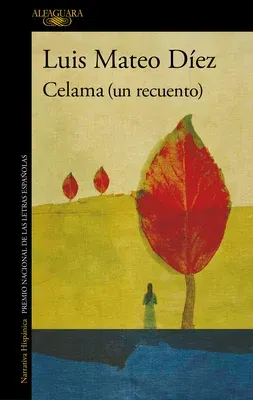EL REGRESO A LA MÍTICA CELAMA DE LUIS MATEO DÍEZ
PREMIO NACIONAL DE LAS LETRAS
**«No existe en este momento en la literatura española, ni entre los
veteranos ni entre los más jóvenes, un escritor con tanta capacidad para
inventar personajes como Luis Mateo Díez». --**José María Merino
«La tierra que llaman Celama nos hizo hijos del mismo destino en una
noche de invierno». Este libro se compone de treinta y ocho historias
que transcurren en el territorio imaginario de Celama. La mayoría forman
parte de la trilogía compuesta por las novelas El espíritu del páramo,
La ruina del cielo y El oscurecer, y otras son inéditas. Todas ellas se
revisten ahora de un nuevo fulgor al aparecer reordenadas por la
afinidad de lo que cuentan. Celama es una metáfora, tan hermosa como
compleja, de la desaparición de las culturas rurales y conduce a lo más
hondo y misterioso del corazón humano. Las historias nos ofrecen un
cómputo de vidas apasionadas, melancólicas, exuberantes, cotidianas o
secretas: un reflejo universal de las condiciones adversas de la vida,
al que no falta la lucidez que añade el humor.
Los cuentos de Celama han sido revisados (recontados) por el autor
para esta edición. Como afirma Ángeles Encinar en el estudio final,
estamos, en definitiva, ante un ciclo narrativo polifónico, que mantiene
una poderosa unidad simbólica.
ENGLISH DESCRIPTION
THE RETURN TO THE MYTHICAL CELAMA OF LUIS MATEO DÍEZ
NATIONAL LITERATURE PRIZE
This book is made up of thirty-eight stories that take place in the
imaginary land of Celama. Most are part of the book trilogy conformed by
The Spirit of the Moor, The Ruin of Heaven, and The Darkening, but
there are also other unpublished tales. All are now donned with a new
radiance after being rearranged, considering the similarities of what
they portray. Celama is a metaphor, as beautiful as it is complex, of
the disappearance of rural culture, and leads to the deepest, most
mysterious parts of the human heart. These stories give us a reckoning
of passionate, melancholic, exuberant, secret, or everyday lives; they
are a universal reflection of the harsh conditions of life, and such a
reckoning is not without the kind of clarity that humor brings.
The tales in Celama have been revised (retold) by the author,
especially for this edition. As Ángeles Encinar claims in the final
study, we are definitely in the presence of a polyphonic narrative cycle
that holds a powerful symbolic unity.
"At this moment, there is not an author in Spanish literature, not among
the veterans nor the young, so capable of creating characters like Luis
Mateo Díez." --José María Merino

